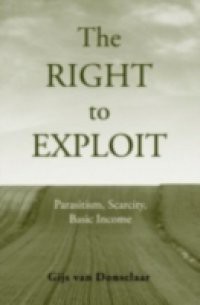In 1895 an English farmer diverted the course of a stream that was flowing through his land, thereby cutting off the supply to the water reservoir of the neighboring community. The courts established that it had been his purpose to injure the plaintiffs by carrying off the water and to compel them to buy him off. Regardless of what the law says, most people will feel that the farmers intentions were morally unjust; he was trying to abuse his property rights in order to take advantage of others. Yet, as Gijs van Donselaar explains, the major traditions in the theory of economic justice, both from the libertarian right and from the egalitarian left, have failed to appreciate the moral objection to exploitative behavior that this case displays. Those traditions entertain radically opposed views on how private property should be distributed, but they do not consider the legitimacy of constraints on the exercise of property rights--however they are distributed. The second part of the book demonstrates how this failure clears the way for a recent egalitarian argument, gaining in popularity, for a so-called unconditional basic income. If all have an initial right to an equal share of the resources of the world, then it soon seems to follow that all have a right to an equal share of the value of the resources of the world, which could be cashed in as a labor-free income. That inference is only valid if moral behavior similar to that of the farmer is tolerated. Van Donselaar argues that, ultimately, a confusion about the nature and value of freedom of choice is responsible for the odd conception of private rights in resources that would justify exploitation.

